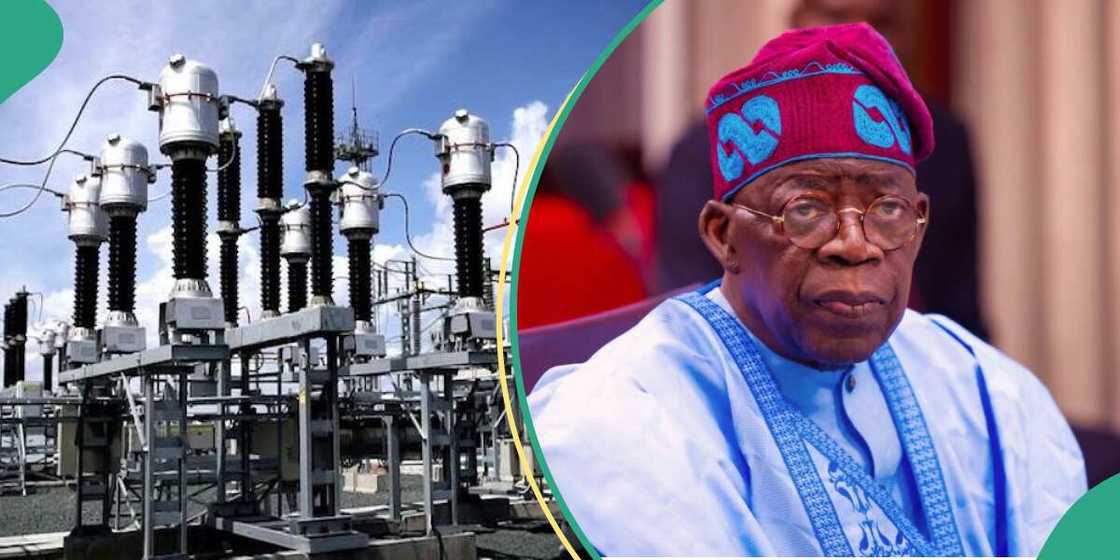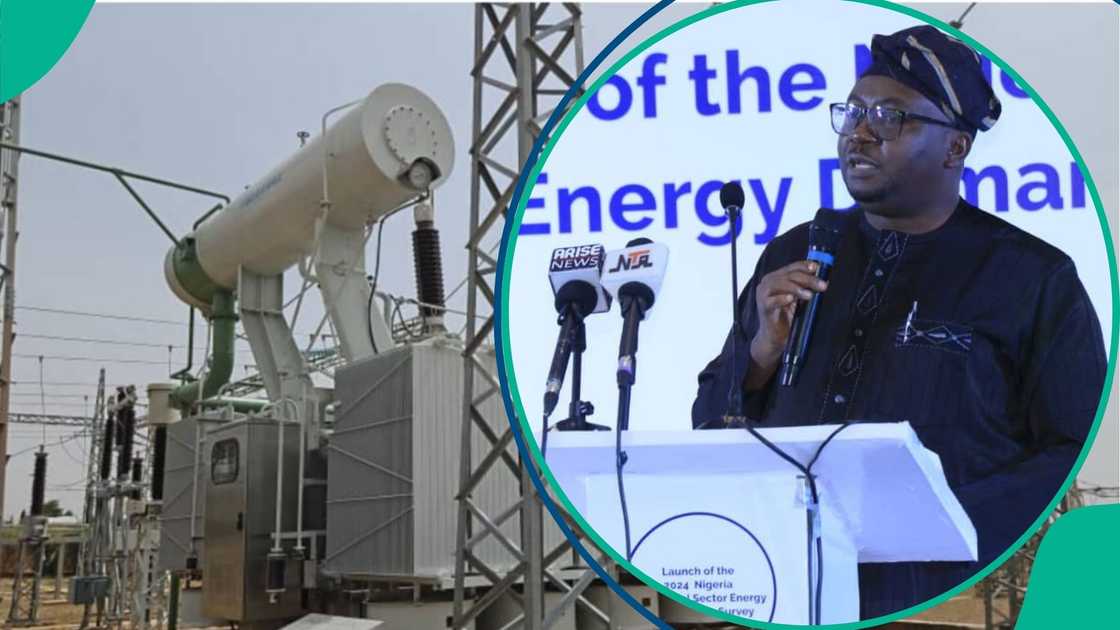Nigerians to Enjoy More Power Supply as FG Plans 7,000MW Boost to National Grid
- The FG has commenced the first phase of the Siemens power project, aiming to add 7,000MW to the national grid to enhance electricity supply
- Efforts to eliminate estimated billing through a nationwide metering initiative and expand energy access via off-grid solar solutions are ongoing
- These actions support Nigeria’s role in the Mission 300 programme, which targets electricity access for 300 million Africans by 2030
Legit.ng journalist Victor Enengedi has over a decade's experience covering Energy, MSMEs, Technology, Banking and the Economy.
Nigeria’s Minister of Power, Chief Adebayo Adelabu, has revealed that the Federal Government is entering the initial stage of the Siemens power initiative, a project aimed at contributing an extra 7,000 megawatts (MW) to the national electricity grid.
This move is expected to significantly improve the stability and availability of power nationwide.

Source: UGC
Speaking in Abuja during a meeting with representatives from the Global Energy Alliance for People and Planet, Adelabu highlighted the government's commitment to expanding electricity access.

Read also
Nigerian airlines warn of higher fares after controversial NIS charge set to begin on December 1
The delegation had visited the Ministry of Power to review Nigeria’s progress toward achieving its Mission 300 goal, a regional effort to provide energy access to 300 million Africans by 2030.
According to the minister, the nation has already recorded a 700MW increase in power supply under the ongoing Presidential Power Initiative (PPI), and further steps are being taken to expand infrastructure in line with rising energy demands.
Adelabu stated:
“We are enhancing grid extension and expansion through programmes such as the Presidential Power Initiative, which has generated an additional 700 megawatts for us. We are moving to the first phase of the Siemens project, which will also add an additional 7,000 megawatts to our generation and also stabilise it."
He also criticised the widespread use of estimated billing in Nigeria's electricity sector, describing it as an unfair practice that exploits consumers. Adelabu stressed that the government is prioritising accurate metering as a key measure to promote fairness and accountability.
In a statement released by his media aide, Bolaji Tunji, the minister outlined several initiatives being pursued to enhance electricity distribution and access.
These include extending the national grid, deploying off-grid solar energy projects, and implementing a nationwide metering programme.
Adelabu said:
“Our metering initiative is going on so that our consumers can get the accurate value of their consumption, as the estimated billing is a rip-off on them.”
Adelabu noted that the metering initiative is part of a larger strategy to boost transparency, minimise technical and commercial losses, and restore public confidence in the sector.
He reaffirmed Nigeria's dedication to the Mission 300 programme, stating that the country has made significant strides, particularly in deploying off-grid solar solutions to improve rural electrification.

Source: Twitter
Assuring the visiting delegation, Adelabu said Nigeria will continue to collaborate with international energy partners to accelerate progress toward universal energy access.
Currently, the country generates around 5,000 MW out of a total installed capacity of 13,000 MW, while over 85 million Nigerians still lack access to electricity.

Read also
New auto giant emerges as E.F. network unveils 40,000-capacity EV assembly plant in Nigeria
FG announces deadline for stable electricity
In related news, Legit.ng had earlier reported that Adelabu reaffirmed Tinubu’s commitment to providing uninterrupted electricity before the end of his administration.
Adelabu highlighted key achievements under the President's Renewed Hope Agenda, including increased generation capacity and sector reforms
He pledged continued collaboration with electricity distribution companies and generation companies to resolve the challenges in the power sector.
Source: Legit.ng



